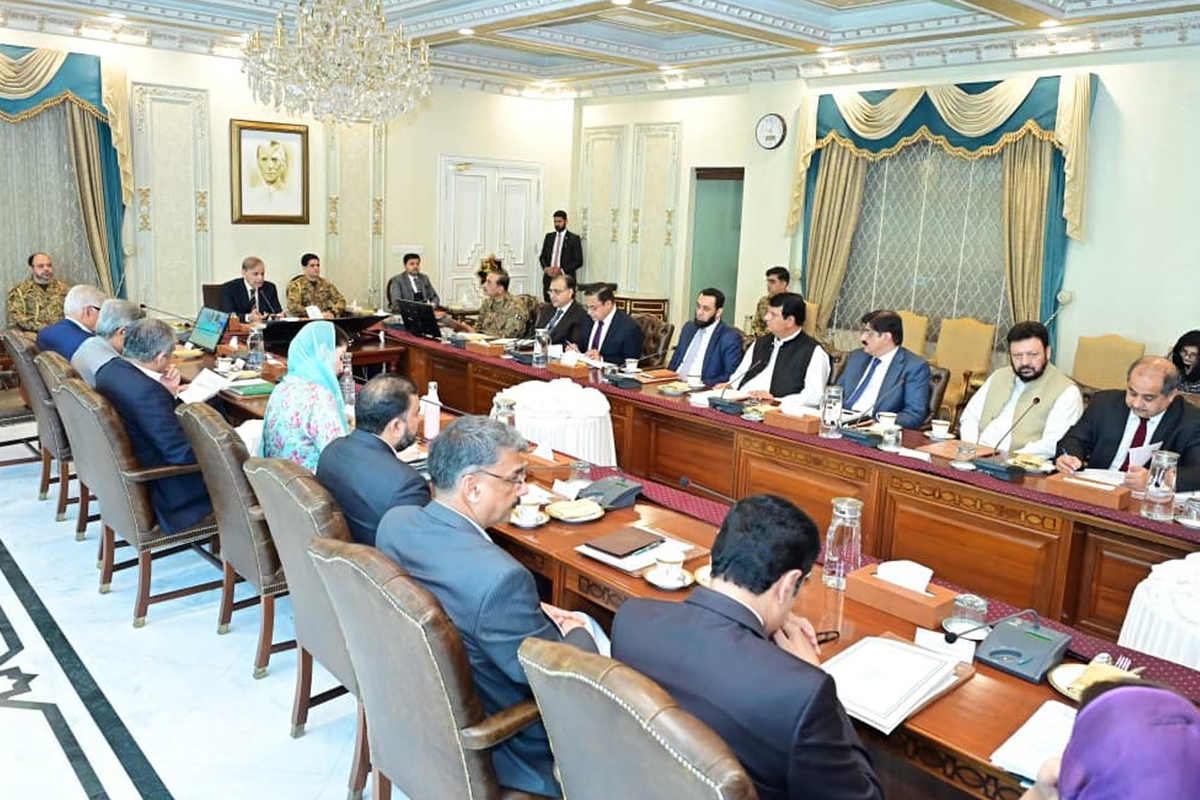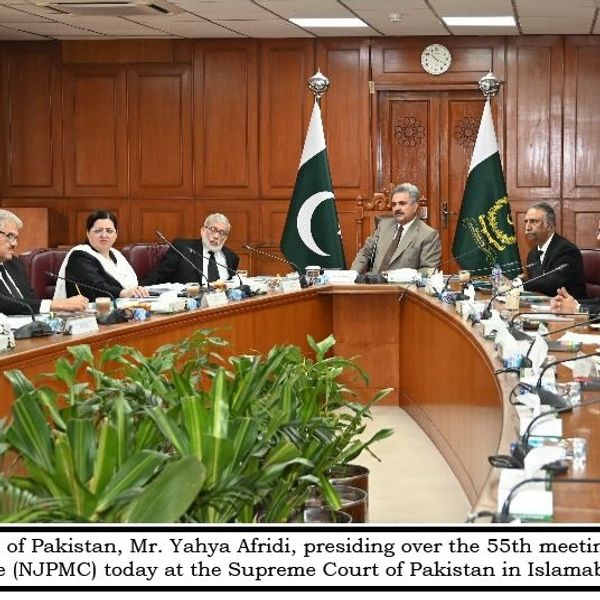Pakistan PM chairs key meeting as KP resists Afghan repatriation plan
PM Shehbaz vows ‘orderly and dignified’ return of Afghan refugees amid border tensions and economic challenges

Javed Hussain
Correspondent
I have almost 20 years of experience in print, radio, and TV media. I started my career with "Daily Jang" after which I got the opportunity to work in FM 103, Radio Pakistan, News One, Ab Tak News, Dawn News TV, Dunya News, 92 News and regional channels Rohi TV, Apna Channel and Sach TV where I worked and gained experience in different areas of all three mediums. My journey from reporting to news anchor in these organisations was excellent. Now, I am working as a correspondent with Nukta in Islamabad, where I get the opportunity of in-depth journalism and storytelling while I am now covering parliamentary affairs, politics, and technology.

Pakistan Prime Minister Shehbaz Sharif chairs a meeting in Islamabad on Friday.
PID
Pakistan’s Prime Minister Shehbaz Sharif on Friday chaired a high-level meeting to review national priorities - including the repatriation of Afghan refugees, post-flood rehabilitation and the country’s wheat policy - amid renewed tensions with Afghanistan following recent border clashes.
The meeting, held at the Prime Minister’s Office, was attended by Army Chief Field Marshal Syed Asim Munir, Deputy Prime Minister and Foreign Minister Ishaq Dar, federal ministers, the prime minister of Azad Jammu and Kashmir, and the chief ministers of Punjab, Sindh, Balochistan, and Gilgit-Baltistan.
Khyber Pakhtunkhwa (KP) was represented by former finance adviser Muzzammil Aslam, as the newly elected Chief Minister Sohail Afridi refused to attend without approval from Pakistan Tehreek-e-Insaf founder Imran Khan. Afridi left Adiala Jail a day earlier without meeting Khan despite waiting two hours for permission.
The meeting came amid renewed tensions between Pakistan and Afghanistan following cross-border clashes earlier this month.
Border tensions and casualties
Hostilities intensified in early October when Pakistan allegedly carried out airstrikes on Tehreek-e-Taliban Pakistan (TTP) hideouts in Afghanistan’s Khost and Paktika provinces. Kabul condemned the strikes as a violation of its sovereignty, prompting several days of retaliatory shelling and gunfire.
Pakistan reported 23 soldiers killed, while Afghan authorities said more than 15 civilians and militants were dead, with hundreds injured on both sides. The violence forced the closure of key trade routes, worsening Afghanistan’s already fragile economy.
PM vows humane, organized repatriation
Addressing the meeting, PM Sharif reaffirmed his government’s commitment to complete the repatriation of Afghan refugees in an “organized and dignified” manner.
He said Pakistan had supported Afghanistan for decades and now needed to regulate its own borders and security. “The people of Pakistan, who have made immense sacrifices in the war against terrorism, are now asking how long we will continue to bear this burden,” he said.
Officials briefed the meeting that more than 1.47 million Afghan nationals had been repatriated as of October 16 and that no further extensions would be given to illegal residents. Only those with valid visas would be allowed to stay.
Authorities said that providing shelter or assistance to undocumented Afghans would be treated as a punishable offence. The Prime Minister instructed that elderly people, women, children, and minorities must be treated with dignity throughout the process.
KP objects to ‘overnight’ implementation
Speaking to Nukta after the meeting, KP representative Muzzammil Aslam said the provincial government agreed with the repatriation policy in principle but opposed its “overnight” implementation.
“The repatriation must be carried out with dignity and according to proper SOPs,” he said. “We proposed three key recommendations — ensuring a respectful return, creating a fair policy for Afghan nationals running businesses in Pakistan, and defining a clear pathway for those who have lived here for over 40 years.”
Aslam added that the Prime Minister agreed with KP’s stance and directed the Interior Ministry to coordinate with the provincial government to develop a comprehensive, humane repatriation plan.
Officials informed the meeting that Pakistan hosts 54 Afghan refugee camps, including 43 in Khyber Pakhtunkhwa, 10 in Balochistan, and one in Punjab. Plans are underway to repatriate residents from 38 already-notified camps, with talks continuing with the Afghan interim government.
Flood recovery, wheat policy also discussed
Later in the meeting, provinces presented updates on flood damage and ongoing rehabilitation projects. The national wheat policy was also discussed, and a committee led by Deputy Prime Minister Ishaq Dar was formed to review wheat pricing, inter-provincial movement, and policy measures.
Prime Minister Shehbaz and other participants commended the army chief and the armed forces for their response to recent cross-border attacks.
“The Pakistan Army, under the leadership of Field Marshal Asim Munir, has once again proven its professional excellence in defending the homeland,” the premier said.
The meeting concluded with a consensus on ensuring close federal-provincial coordination for the lawful, humane repatriation of Afghan refugees while addressing wider economic and humanitarian challenges.










Comments
See what people are discussing